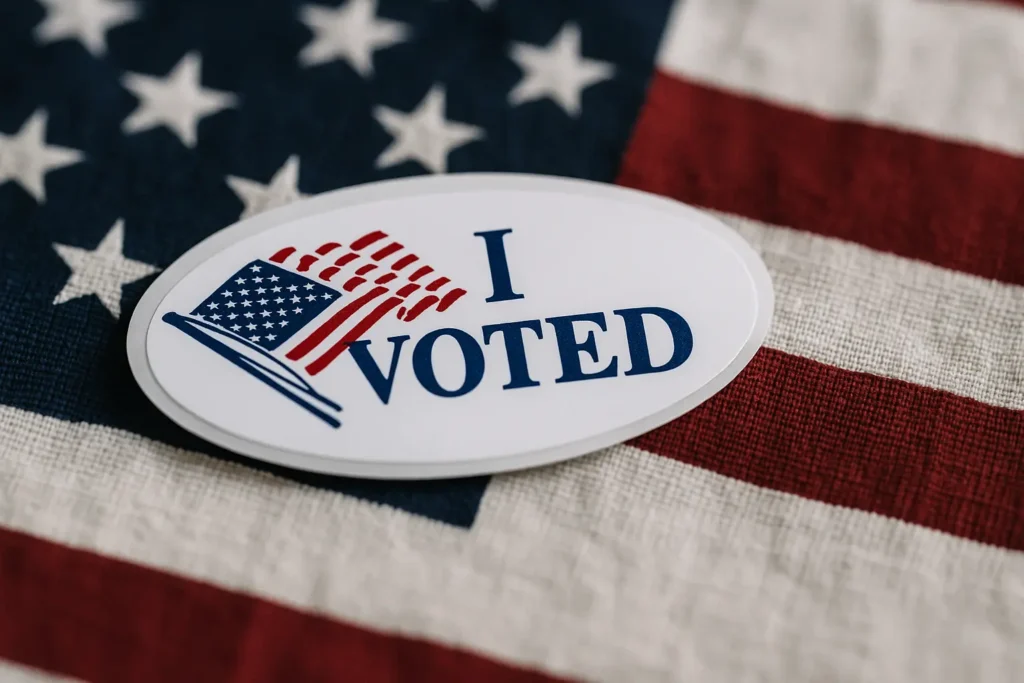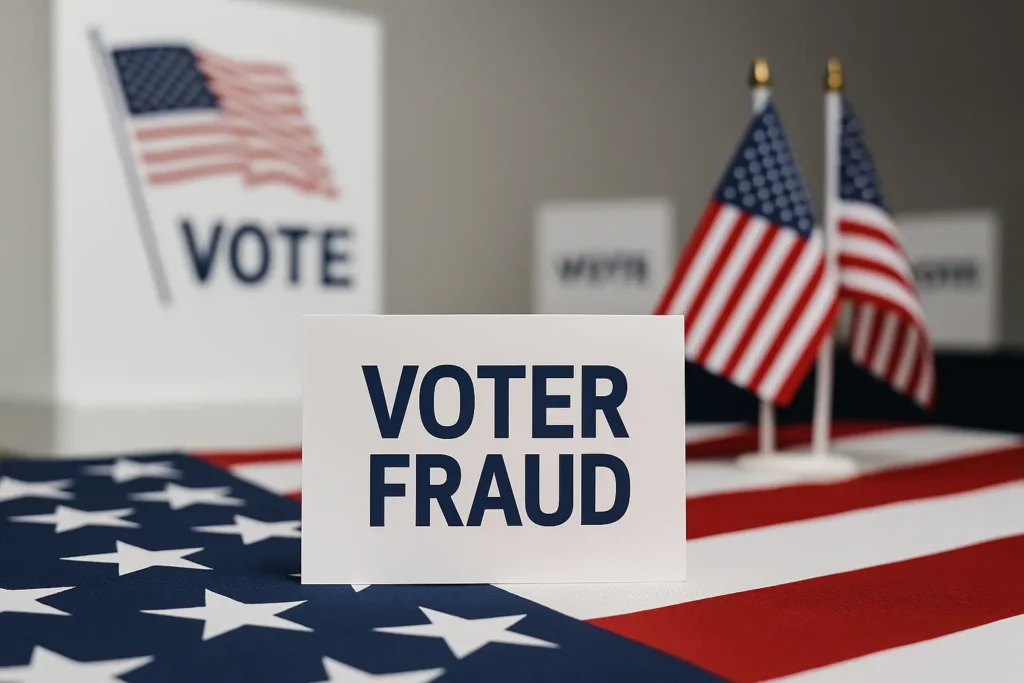
Voter fraud stirs strong emotions, especially during election season. Terms like ballot tampering, dead voters, and double voting grab attention—but they often misrepresent reality. While confirmed cases of voter fraud are rare, the issue still shapes voting laws, influences political debates, and affects public trust in the system. Understanding voter fraud means looking past the headlines to examine the actual risks, methods, and consequences tied to these claims.
What Counts as Voter Fraud?
Voter fraud involves illegal interference with the voting process. It covers a wide range of actions, all of which aim to alter the outcome or falsely represent someone’s eligibility to vote. People often confuse administrative mistakes with fraud, but intent matters.
Common Types of Voter Fraud
- Impersonation: A person pretends to be someone else to cast a vote.
- Double Voting: Someone votes in more than one jurisdiction or submits multiple ballots.
- Ballot Harvesting Abuse: A person collects absentee ballots from voters but alters or discards them.
- Fake Registrations: Someone registers voters using false identities to skew the rolls.
- Vote Buying: Someone offers money or incentives in exchange for casting a specific vote.
- Illegal Voting: Non-citizens, felons, or ineligible individuals cast ballots knowingly.
How Voter Fraud Happens
In most elections, safeguards make it hard for fraud to occur on a large scale. Still, weak enforcement or poor oversight in certain districts can create openings. Fraud often depends on access to sensitive parts of the system, such as absentee ballots, registration records, or voting machines.
Absentee Ballot Risks
Voting by mail helps many voters, especially those who are elderly or live far from polling sites. But it also opens opportunities for fraud. Ballots pass through many hands, often outside the direct view of election officials. If someone intercepts or alters these ballots, the process becomes vulnerable.
Some states require signature verification or ID with absentee ballots. Others allow voters to track their ballots online. These tools help prevent fraud, but they rely on consistent oversight and good recordkeeping.
Registration Issues
Fake or duplicate voter registrations clog databases and cause confusion. Sometimes, political groups register people without verifying details, then submit false forms to meet quotas. While those false entries rarely lead to actual illegal voting, they create opportunities for abuse and weaken confidence in the system.
States that lack strong voter roll maintenance may leave deceased individuals or former residents on their lists. Fraudsters can exploit these outdated records.

Poll Worker Misconduct
Poll workers manage ballots, help voters, and monitor the process. Though rare, some workers have taken part in ballot tampering or allowed unqualified votes to slip through. Proper training and background checks reduce this risk.
Machine Tampering
Electronic voting machines sometimes draw attention due to hacking fears. Most machines do not connect to the internet, and election offices test them regularly. Still, some cases show the importance of physical security and audit procedures. Without paper trails or machine checks, fraud becomes harder to detect or prove.
Actual Numbers and Public Perception
Despite concerns, proven voter fraud cases make up a tiny fraction of total votes. Researchers and watchdog groups have found that voter impersonation, the most feared type, almost never happens. Most documented cases involve clerical mistakes or misunderstandings.
Still, public concern remains high. Politicians often raise the issue during heated campaigns. News reports of isolated incidents spread fast, even if later proven false. These stories create distrust and drive efforts to tighten voting rules.
Legal Penalties for Voter Fraud
Texas and other states treat voter fraud as a serious crime. Penalties vary based on the act, but most carry fines, jail time, or both. In Texas, illegal voting can lead to a felony charge with up to 20 years in prison. People found guilty may also lose their voting rights for years.
Recent Texas Cases
Texas has prosecuted several voter fraud cases in the past decade. In most, investigators found issues with absentee ballots or illegal registration. Some defendants claimed confusion or lack of intent, while others knowingly violated the law. These prosecutions serve as warnings and fuel the push for stricter laws.
How States Combat Voter Fraud
States use a mix of tools to reduce fraud while allowing access to voting. These efforts focus on prevention, detection, and punishment.

Voter ID Laws
Many states now require voters to show identification at the polls. Supporters argue that this prevents impersonation and confirms eligibility. Critics argue that strict ID laws can discourage legal voters, especially seniors, students, or low-income individuals without easy access to ID.
Registration Verification
States cross-check voter rolls against death records, DMV databases, and change-of-address files. Some use programs like ERIC (Electronic Registration Information Center) to share data and clean up their rolls.
Mail Ballot Tracking
Ballot tracking systems let voters follow their absentee ballots through every step. These tools improve transparency and help spot delays or problems.
Audits and Paper Trails
Risk-limiting audits compare paper records with electronic results. They detect fraud and correct errors. States that rely on hand-marked ballots or printed machine summaries have more security options in place.
Myths About Voter Fraud
Not every suspicious act counts as fraud. People often mistake delays, registration issues, or clerical errors for criminal behavior. Here are common misconceptions:
Myth: Dead People Vote Regularly
Reality: Most cases involve voter rolls not updated fast enough. Election officials reject these votes once caught.
Myth: Millions of Illegals Vote
Reality: Studies show that non-citizen voting is extremely rare. When it happens, it usually results from confusion, not intent.
Myth: Voting Machines Flip Votes
Reality: Machines undergo testing and audits. Few proven cases exist of intentional machine tampering that changed results.
Voter Fraud and Election Laws in Texas
Texas has some of the strictest voting laws in the country. Lawmakers continue to push for stronger penalties and more checks. These laws target illegal voting and improve election integrity, but they also spark lawsuits and protests over voter suppression.
Senate Bill 1
Passed in 2021, this bill added new requirements for mail-in ballots and restricted certain types of assistance. Supporters said it closed loopholes. Critics said it made voting harder for some communities.
Ongoing Legal Battles
Courts continue to hear cases on Texas voting laws. These rulings will shape how fraud prevention balances with voting rights.
What Voters Can Do
Voters play a role in keeping elections secure. Follow all voting rules. Use proper ID. Double-check registration. Report suspicious behavior to election officials, not just social media.
If voting by mail, sign your envelope, follow all instructions, and use ballot tracking if offered. Mistakes can lead to rejected ballots that never count, even when cast legally.
Final Thoughts
Voter fraud triggers strong opinions, but facts matter more than fear. Most elections run smoothly without serious fraud, thanks to safeguards and dedicated election officials. Still, gaps in the system can create risks if left unaddressed.
Laws, audits, and informed voters help reduce those risks. By understanding how voter fraud occurs, we can protect voting rights and ensure fair elections. Trust in the system grows when every vote counts and the process works as promised.
Call us now at (281) 810-9760.

Other Related Articles
- DOJ Lawsuit: Alabama Purge The Voter List Last Minute
- Startling Voter Fraud Sends Crystal Manson Into Panic
- Exercising Your Rights: How to Avoid Jury Selection in Texas
- A Daring Attack: The Election Day Terrorist Threat
- Insurance Fraud Uncovered
- Can fraud be the basis for your getting an annulment?
- What are some signs that your spouse may be defrauding you?
- What is paternity fraud and how can it affect your child?
- Auto Insurance Fraud Exposed
- Health Insurance Fraud: Schemes and Legal Ramifications



